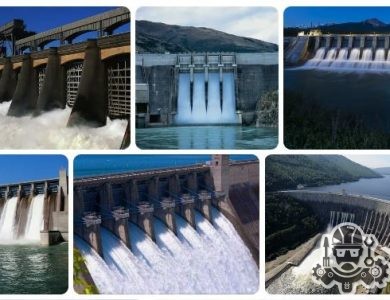What is Civil Engineering?

Civil engineering is a branch of engineering that deals with the design, construction, and maintenance of infrastructure and the built environment. It involves the planning, design, construction, and management of various structures such as buildings, bridges, roads, dams, airports, water supply systems, sewage systems, and other public works projects.
Civil engineers apply scientific and technical knowledge to develop safe, efficient, and sustainable solutions for society’s infrastructure needs. They consider factors such as structural integrity, environmental impact, public safety, and economic feasibility in their designs and projects. Civil engineers work in collaboration with architects, urban planners, surveyors, and other professionals to ensure the successful completion of projects.
The scope of civil engineering is vast and encompasses several specialized areas, including structural engineering, geotechnical engineering, transportation engineering, environmental engineering, water resources engineering, and construction management. Civil engineers may be involved in various stages of a project, from initial feasibility studies and site investigations to design, construction supervision, and ongoing maintenance.
In summary, civil engineering plays a crucial role in shaping the physical environment we live in. It involves the application of engineering principles to create and improve infrastructure systems that enhance the quality of life for communities and contribute to sustainable development.
Contents
What does a Civil Engineering do?
Civil engineers are responsible for various tasks related to the design, construction, and maintenance of infrastructure projects. Their primary role is to ensure the safe, efficient, and sustainable development of physical structures and systems that meet the needs of society. Here are some of the key responsibilities and tasks performed by civil engineers:
- Planning and Design: Civil engineers participate in the planning and design phase of projects. They analyze project requirements, conduct feasibility studies, and develop design concepts and specifications for structures such as buildings, bridges, roads, and water supply systems. They consider factors like structural integrity, safety, environmental impact, and cost-effectiveness.
- Project Management: Civil engineers oversee the implementation of construction projects. They develop project plans, manage budgets, schedule activities, and coordinate with contractors and other stakeholders to ensure smooth project execution. They also monitor progress, resolve issues, and ensure compliance with regulations and quality standards.
- Structural Analysis and Design: Civil engineers perform structural analysis to determine the strength and stability of buildings, bridges, and other structures. They use computer-aided design (CAD) software and engineering principles to design structures that can withstand various loads and environmental conditions.
- Geotechnical Engineering: Civil engineers assess soil and rock properties to determine their suitability for construction projects. They conduct geotechnical investigations, analyze soil stability, and recommend foundation designs and soil improvement techniques.
- Transportation Engineering: Civil engineers design transportation systems, including roads, highways, railways, and airports. They analyze traffic flow, develop transportation plans, and design roadway alignments, intersections, and transportation facilities to ensure safe and efficient movement of people and goods.
- Water Resources Engineering: Civil engineers manage water resources by designing and maintaining systems for water supply, drainage, and wastewater treatment. They develop hydraulic models, design water distribution networks, stormwater management systems, and sewage treatment plants.
- Environmental Engineering: Civil engineers work on projects that aim to protect and improve the environment. They develop sustainable solutions for waste management, pollution control, and environmental remediation. They also consider the environmental impact of construction projects and implement measures to mitigate adverse effects.
- Construction Inspection and Quality Control: Civil engineers perform inspections and quality control checks during construction to ensure compliance with design specifications, safety standards, and building codes. They address any issues or deviations from the plans and make necessary adjustments to ensure the quality and integrity of the project.
These are just a few examples of the tasks and responsibilities of civil engineers. Their work is diverse and can vary depending on the specific project, industry, and specialization within civil engineering.

What is Civil Engineering salary?
The salary of civil engineers can vary depending on several factors such as experience, education, location, industry, and the specific job role or position. Additionally, economic conditions and market demand can also influence salary levels.
In the United States, according to data from the U.S. Bureau of Labor Statistics (BLS) in May 2020, the median annual wage for civil engineers was approximately $88,570. The lowest 10% earned around $56,470 or less, while the highest 10% earned around $144,560 or more.
It’s important to note that these figures represent median values and can vary based on individual circumstances. Factors such as additional certifications, advanced degrees, specialization, and years of experience can contribute to higher salaries. Additionally, civil engineers working in certain sectors, such as oil and gas, consulting firms, or government agencies, may receive different compensation packages.
Salaries can also vary based on geographic location. Areas with high costs of living or in-demand engineering markets may offer higher salaries compared to areas with lower demand. It’s advisable to research salary data specific to your location and industry to get a more accurate understanding of salary ranges.
Overall, civil engineering is considered a well-paying profession, and salaries can increase as engineers gain experience, take on leadership roles, or specialize in a particular area of civil engineering.
What is the Civil Engineer salary in other countries?
The table below showcasing the approximate salary ranges for civil engineers in different countries. Please note that these figures are approximate and can vary based on factors such as experience, qualifications, industry, and location within each country.
| Country | Salary Range (Approximate) |
|---|---|
| Canada | CAD 60,000 – CAD 100,000 |
| France | EUR 30,000 – EUR 60,000 |
| Spain | EUR 25,000 – EUR 45,000 |
| Germany | EUR 40,000 – EUR 70,000 |
| Japan | JPY 3,500,000 – JPY 7,000,000 |
| England | GBP 25,000 – GBP 50,000 |
| Turkey | TRY 40,000 – TRY 90,000 |
| Italy | EUR 25,000 – EUR 50,000 |
| Portugal | EUR 20,000 – EUR 40,000 |
| China | CNY 80,000 – CNY 200,000 |
These salary ranges are provided as a general guideline and can vary based on several factors. It’s important to consider the cost of living, tax rates, and other local factors when evaluating salaries in different countries. Additionally, salaries can also vary based on the specific industry, company size, and level of responsibility within the civil engineering profession.
Civil Engineering Jobs
Civil engineering offers a wide range of job opportunities across various sectors. Here are some common job roles and positions within the field of civil engineering:
- Structural Engineer: Design and analyze structures such as buildings, bridges, and towers to ensure their strength, stability, and safety.
- Geotechnical Engineer: Assess soil and rock conditions to provide recommendations for foundation design, slope stability, and ground improvement techniques.
- Transportation Engineer: Plan and design transportation systems, including roads, highways, railways, airports, and traffic management systems.
- Water Resources Engineer: Develop and manage water-related projects, including water supply systems, dams, flood control measures, and wastewater treatment facilities.
- Environmental Engineer: Address environmental issues related to civil engineering projects, such as pollution control, waste management, and sustainable development.
- Construction Engineer/Manager: Oversee and manage construction projects, ensuring compliance with design specifications, budget, and schedule.
- Urban Planner: Plan and develop urban areas, considering factors such as land use, infrastructure, transportation, and environmental sustainability.
- Coastal Engineer: Design and manage projects related to coastal areas, including erosion control, beach nourishment, and harbor development.
- Project Engineer: Coordinate and manage engineering projects from inception to completion, ensuring successful delivery within budget and time constraints.
- Surveyor: Conduct land surveys, collect and analyze data, and provide accurate measurements and maps for construction and land development projects.
- Water/Wastewater Engineer: Design and manage water and wastewater treatment systems, ensuring safe and efficient handling of water resources.
- Construction Materials Engineer: Evaluate and test construction materials for quality control and ensure compliance with industry standards and specifications.
These are just a few examples of the diverse job opportunities available within civil engineering. The field also offers opportunities for specialization in areas such as earthquake engineering, coastal engineering, structural dynamics, and more. Additionally, civil engineers can work in government agencies, consulting firms, construction companies, research institutions, and other organizations.
Civil engineering is a branch of engineering that deals with the design, construction, and maintenance of infrastructure and the built environment. It involves the planning, design, construction, and management of various structures such as buildings, bridges, roads, dams, airports, water supply systems, sewage systems, and other public works projects.
Civil engineers are responsible for various tasks related to the design, construction, and maintenance of infrastructure projects. Their primary role is to ensure the safe, efficient, and sustainable development of physical structures and systems that meet the needs of society.
Civil engineering offers a wide range of job opportunities across various sectors.




One Comment